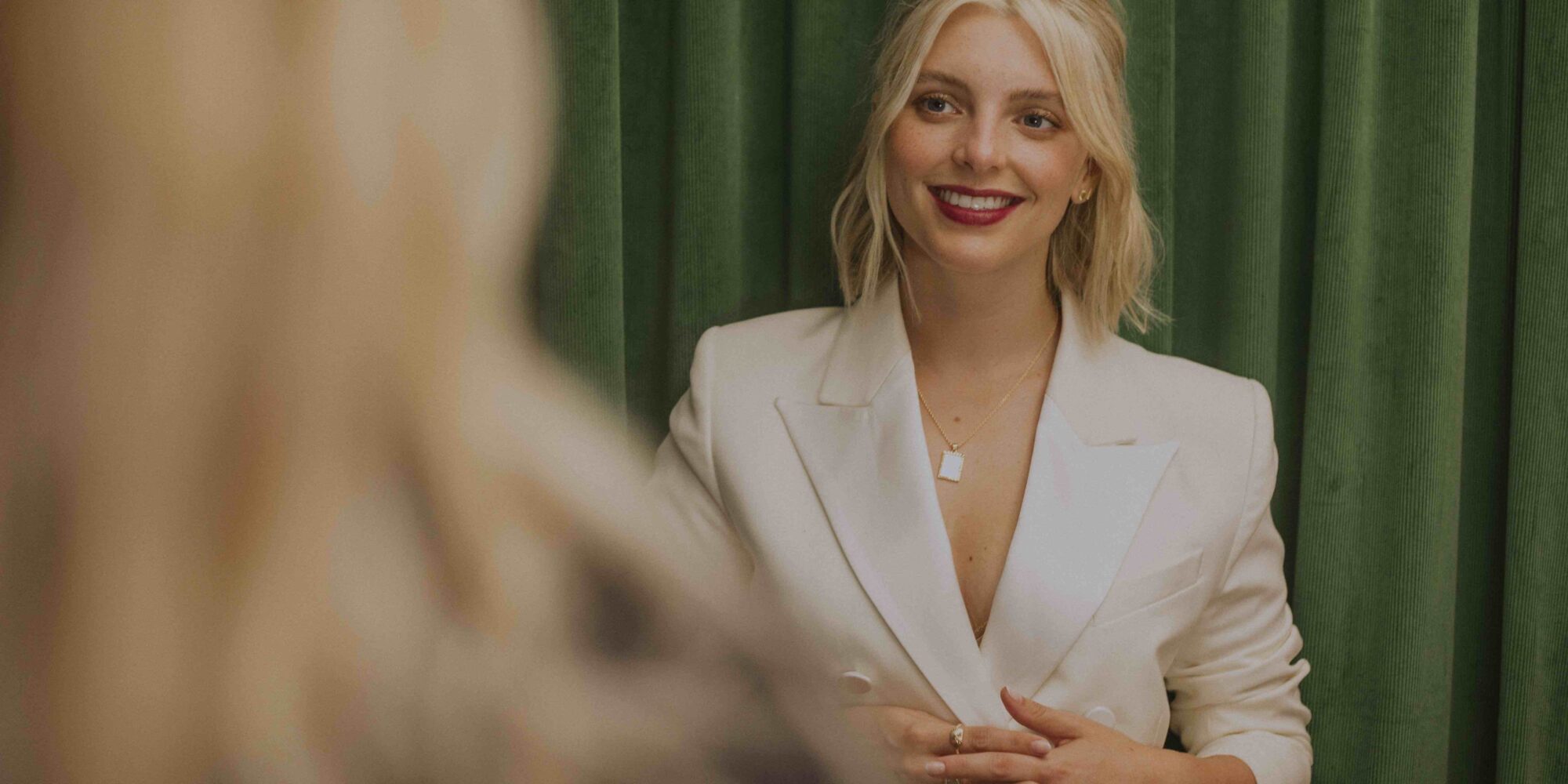
Estée Lalonde On How The Pandemic And Black Lives Matter Are Changing The Beauty Influencer Business
The pandemic has put the careers of most influencers in flux. Beauty and lifestyle guru Estée Lalonde’s is no exception. The break from big events and splashy campaigns has allowed her to ponder the state of the beauty industry and her future. “It would be weird if we all came out of this and went right back to how it was before, which was product after product after product,” says Lalonde, who has 1.14 million YouTube subscribers and 717,000 Instagram followers. “It was very disposable.”
The disposable period preceding the pandemic was dramatically different from the beauty content scene about a decade ago when Canadian-born Lalonde, a native of Waterloo, Ontario and London resident, began blogging as Essie Button and influencing wasn’t a job description. Back then, she didn’t envision making money from posting videos and pictures or have an ambitious professional strategy. Since those early days of social media, she’s become business savvy, and partnered with beauty brands the likes of Nars, Nudestix, By Terry and Lancôme. Still, Lalonde hasn’t plotted out a grand plan. She is, however, definitely interested in launching a brand.
As she noodles on what that brand will be, Lalonde is enduring the coronavirus crisis by cozying up to her dog Effie, running, cooking meals (carbonara is a favorite), and chronicling it all in posts that capture the extraordinary weirdness of ordinary existence in this moment. She called one recent video, “A Vlog About Nothing.” “Now, I’m just showing people my life, and they are connecting with it, but I wish I could think of a bigger way to make people feel more connected, and I’m working on that,” says Lalonde. Beauty Independent chatted with her about her background, Black Lives Matter, brand deals, creating a brand of her own, and the effect of the coronavirus on the influencer landscape.
Where are you from?
I grew up in suburban Canada, and I didn’t really have a huge plan for myself for my career. I wasn’t really one of those people who knew what I wanted to do. I was kind of going with the flow. I didn’t particularly enjoy school, socially and otherwise. I was not into it. I did know that I wanted to get to a big city. I was obsessed with living in New York. I never thought I would be living in London. Also, I never really thought I would work in beauty. I always liked beauty, but I was never the type of person to have loads of makeup on. That wasn’t really me. I have always had a natural approach to beauty and products in general. I never liked a lot of fuss. It’s a little funny that I’m working in beauty now.
How did you get into beauty and content creation?
I was always into my independence and making my own money. I got a retail job at The Body Shop at 17. That was my first job in beauty, and that’s where I discovered face masks, and bath and body products. That was the first time I really understood beauty as a self-care ritual. I was working at The Body Shop and graduated high school. I went to university in Toronto for a few months, and it wasn’t for me. I came home to live with my mom, and I did an interior design course. I decided I wanted to go back to university for psychology. Then, I met someone and fell in love. He happened to live in London. I moved here to pursue the relationship and, when I moved, I didn’t have any friends or family. Through sheer desperation, I discovered blogging. It began as a way to make friends.
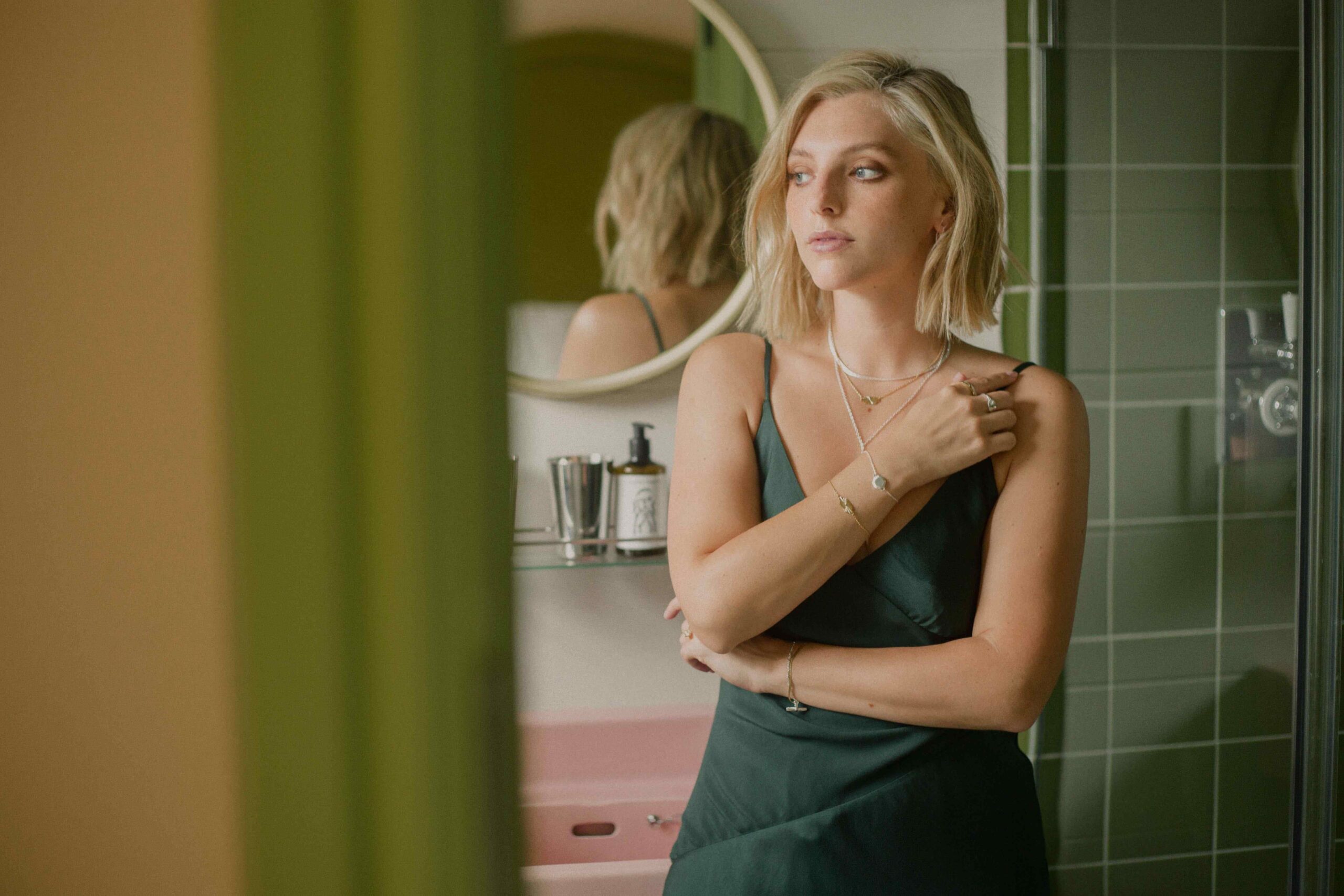
What were your first posts like?
My first post was actually a chicken soup recipe, which was just crazy. Then, I did a travel post, and I did something on what I picked up at the drugstore Boots. It was a very slow progression. Eventually, people started reading my blog, and they said, “You should really do a video. We want to see you talk about the products.” Everyone was interested in my transition from Canada to here. I moved to the U.K. when I was 19. I was just a little baby. I was scared and didn’t understand anything, and I think a lot of people thought that was interesting. A huge part of gaining my audience was sharing that journey with them and discovering beauty products along the way. It was just about me learning and trying new things with my audience involved. No one at that time considered this a career. It was literally something I was doing for fun. I didn’t get paid to do videos or blogging for at least a couple of years, and I was posting every day. It was truly a hobby.
How did you find your voice as an influencer?
Because there were many of us up-and-coming at the same time, it was clear what everyone’s niche was. This person would know everything about skincare, and another person would know everything about how to do hair. My thing was I never knew what my thing was. To this day, I feel I don’t know what my real niche is. It’s still about sharing my life journey. Some of my most successful videos have been about losing my last pet and mental health. I guess I’m a beauty vlogger, and beauty is a focus, but it’s something that is incorporated into my life, and I’ve shared a lot of my life.
Is there anything you don’t share?
Over the years, I’ve definitely learned to have much stricter boundaries with my personal life. When I started out, I was so young. I was really naïve, and nobody knew where this would go. I always have had people say in my ear, “This bubble will burst, and you are not going to be able to do this forever.” I don’t think I really understood that what you put on the internet stays on the internet. I’m 30 now, and I value my privacy a lot more. I don’t regret sharing anything, but, going forward, I have a completely different attitude about it.
When did brands start reaching out to you?
Early on in my blogging days, brands were starting to send out press samples to bloggers, but even that was very new. If you were a smaller blogger, you might not have never been able to get the email contact. It was nothing extravagant like it is today where they send you flowers and huge things. It was a product in a box, and that’s it. I still think that’s how it should be. One of the first things I got was the Liz Earle Hot Cloth Cleanser. They were quite famous for sending that to bloggers, and that was a huge reason for the product’s success. Everyone was talking about it. When the Urban Decay Naked Palette, it was havoc in the blogosphere.
At that time, no brand was paying you to feature things. Urban Decay wasn’t saying, “We will give you the palette and pay you to feature it.” That was completely unheard of. Then, slowly brands would say, “We have 200 pounds to feature this,” and we would say, “Oh my god, 200 pounds!” Eventually, people started feeling the need for representation and getting agents. An agent approached me and explained to me I had a dedicated audience in a target demographic that these brands want. We realized we do have value and carry a lot of worth, and that’s when real brand partnerships started. That was three years into my blogging career.
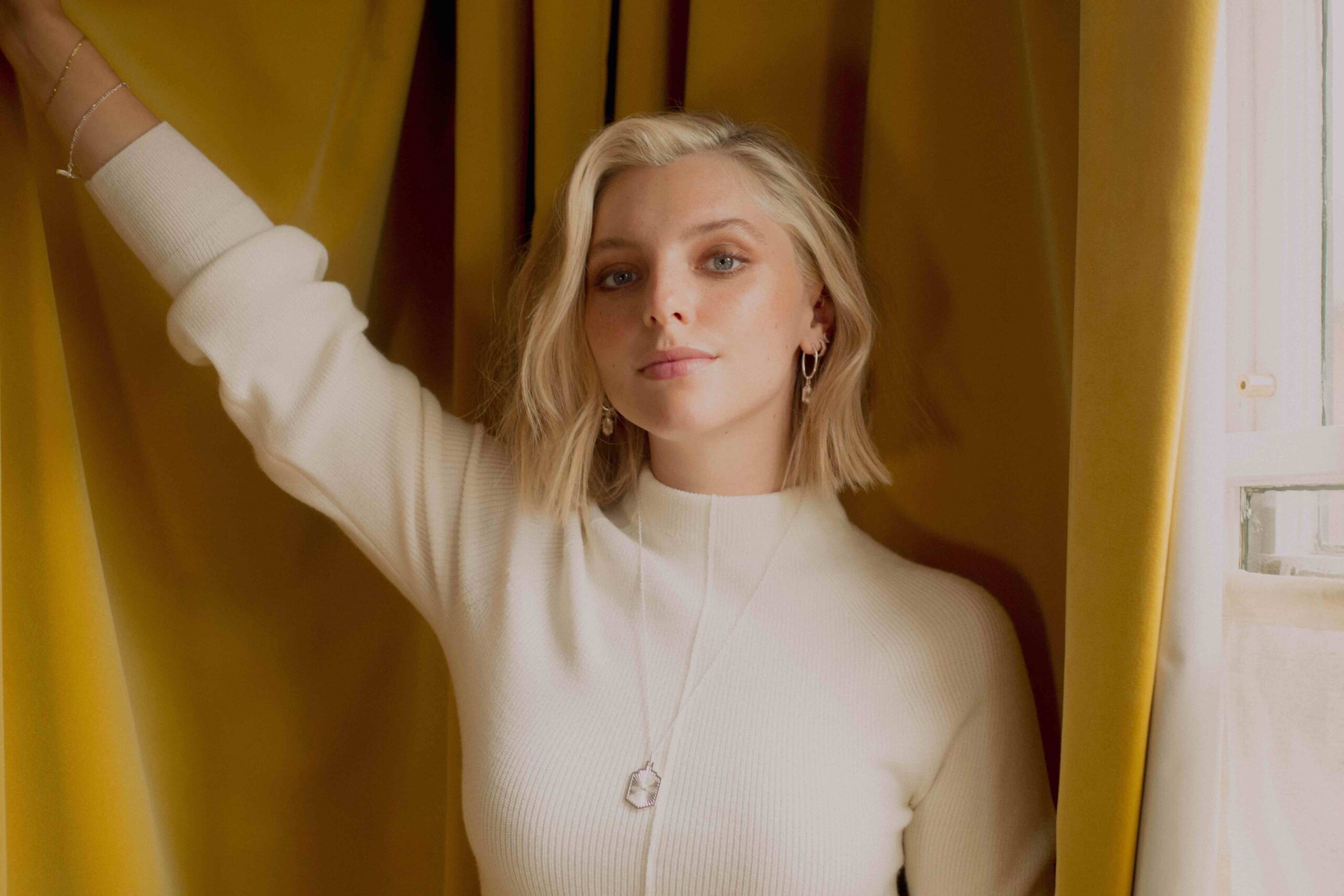
Did you think about what the long-term trajectory of your career would be?
Honestly, no. It seems so crazy looking back, but it was my hobby. I was doing it regardless and getting paid for it. I wasn’t actually concerned about the next things I would be doing until maybe five or six years in. That’s when I started getting a little bit older. I’ve honestly never been numbers-driven. I don’t like that type of strategy. I never look at statistics when it comes to my YouTube. The way I have always worked is to do what feels good and, if it doesn’t feel good, then I stop doing it. I’m not trying to manipulate my audience. If you start manipulating your audience because you’re thinking bigger, it feels icky to me. It’s my job, and I do get paid to do things, but, at the end of the day, it’s still my life.
What was your first brand partnership?
I don’t know if this was the very first, but my first big one was All Things Hair for Unilever. It was basically a YouTube channel, and they paid a bunch of YouTubers to go on and do hair tutorials with their products. For me, it was a huge amount of money, and I was also being put beside other bloggers that were huge at the time. It felt bigger than your average brand partnership. It was the first time I had ever been on set. I was nervous and terrified. I was still working two I part-time jobs. I worked at Topshop and Apple, and I was also studying. I was busy blogging, but I felt I still needed to work. It wasn’t super secure. When I got the deal with All Things Hair, I was exhausted emotionally, physically and spiritually. I called my mom and said, “Something has to give.” I quit my part-time jobs and dropped out of university. Everybody around me was like, “Are you sure you want to do this?” But I said, “I can’t give everything to making this YouTube thing work if I’m exhausted.” I told myself I was going to give it a year, and here I am telling the tale.
When did you bring on representation?
I was 21/22, and I had no business experience. I didn’t have any confidence in myself, and I didn’t think I would be able to negotiate well at all. I remember being talked into doing a bunch of work for free because I was too nervous to say, “No, I need to get paid for that.” Also, with the workload, I literally couldn’t do it all. I felt I needed to get representation. I had a few agents before WME, but I’ve been with them for a few years.
What sort of brand deals do you prefer?
I still like doing one-off deals with brands where they say, “We have this product launching, try it and feature it in a video.” I like those deals because it keeps things fresh for me, but I also like long-term deals and building a relationship with a brand by working with them over and over again. Your audience understands the brand then, and it feels authentic because it is, and you can work with the brand to be more creative. Nobody wants to be given a brief, a product, and that’s it. All of us are craving authority over the kind of content we make. This is a conversation that I’ve been having since I started this job, and we’re still having. Ultimately, a brand is hiring a content creator to create content, so they should let them create the content, and they shouldn’t tell them how to do it.
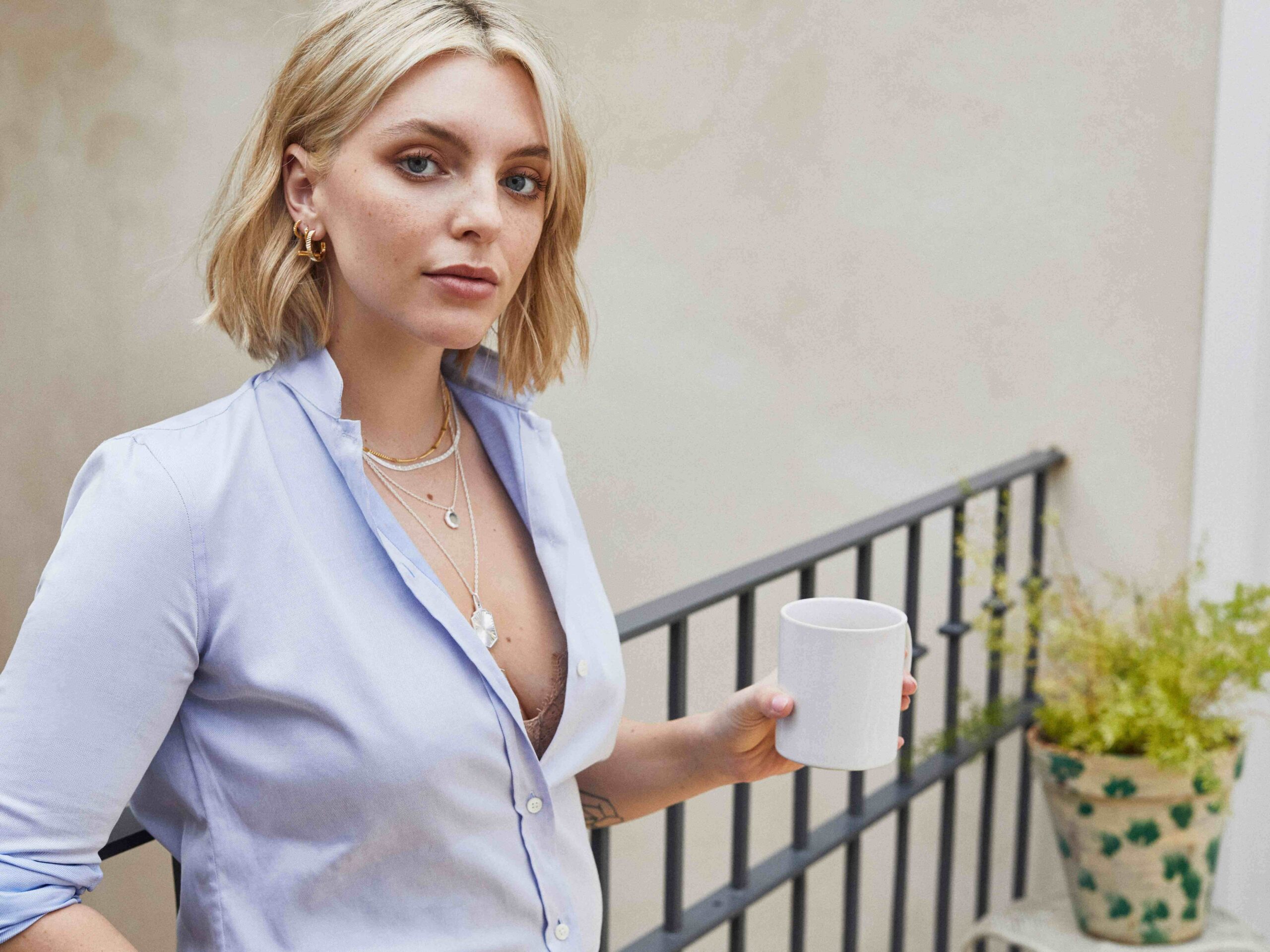
What advice do you have for smaller brands looking to work with influencers?
If you are a smaller brand and you want to work with influencers, the best thing to do is just talk to the influencer. We’re humans. Give them respect and the time to get to know you and your brand with no pressure. Nobody likes pressure. If you want to work with them and have a budget, just be straight up and honest about it. Say, “We have this amount of money. You love our product. Do you think we could work together? If so, how?” Let them tell you how. That’s way more exciting than, “We are launching a new product, and we have this strategy.”
What projects are on your bucket list?
For me, the most fulfilling thing I have ever worked on is my jewelry. It’s a collaboration with a brand called Daisy. We started working together a couple of years ago, and we have done two collections. I’m currently working on the next one. That was a totally new thing for me to not only create a product, but really work out the marketing strategy, what the meaning behind the jewelry is, why I love it, why I wanted to do it, the photo shoots, tweaking the samples, making everything just perfect, and seeing people buy and wear it.
What’s different about your business amid the pandemic?
There are less deals coming in for sure, but there are still projects that I’m working on. In some aspects, it’s kind of nice because the deals are more considered, and it means the brand really wants to work with you. It’s not just a numbers thing. We are all going through this crazy time. I’m exhausted trying to make content and stay positive. In a way, it’s given content creators an opportunity to regain the grittiness that was appealing in the beginning. Why people started making videos is they wanted to feel seen and relate to people. I’ve been a part of the press trips and fancy dinners, but I think there’s been something lost along the way, which is the honesty. I don’t mean honesty in the sense of what you are saying is honest, but in the sense that you can make a video just lounging in your apartment. You don’t always have to be doing the next thing and working constantly. That culture is so exhausting. It’s nice to see everybody slow down.
You mention a lot of expensive products in your posts. Do you think about how expensive they are?
It’s something I do think about. It’s tough because I’ve been working with these products, and I’m gifted them. Everyone knows that, but I really love the products. For me, it feels less authentic to go out and get a cheaper product just because it’s cheaper, but I definitely need to be more mindful. In the beginning, when I started making videos, I was featuring more affordable products because I was 19, working part-time jobs and a university student. I’m in a different place, but I do think I need to find more affordable alternatives.
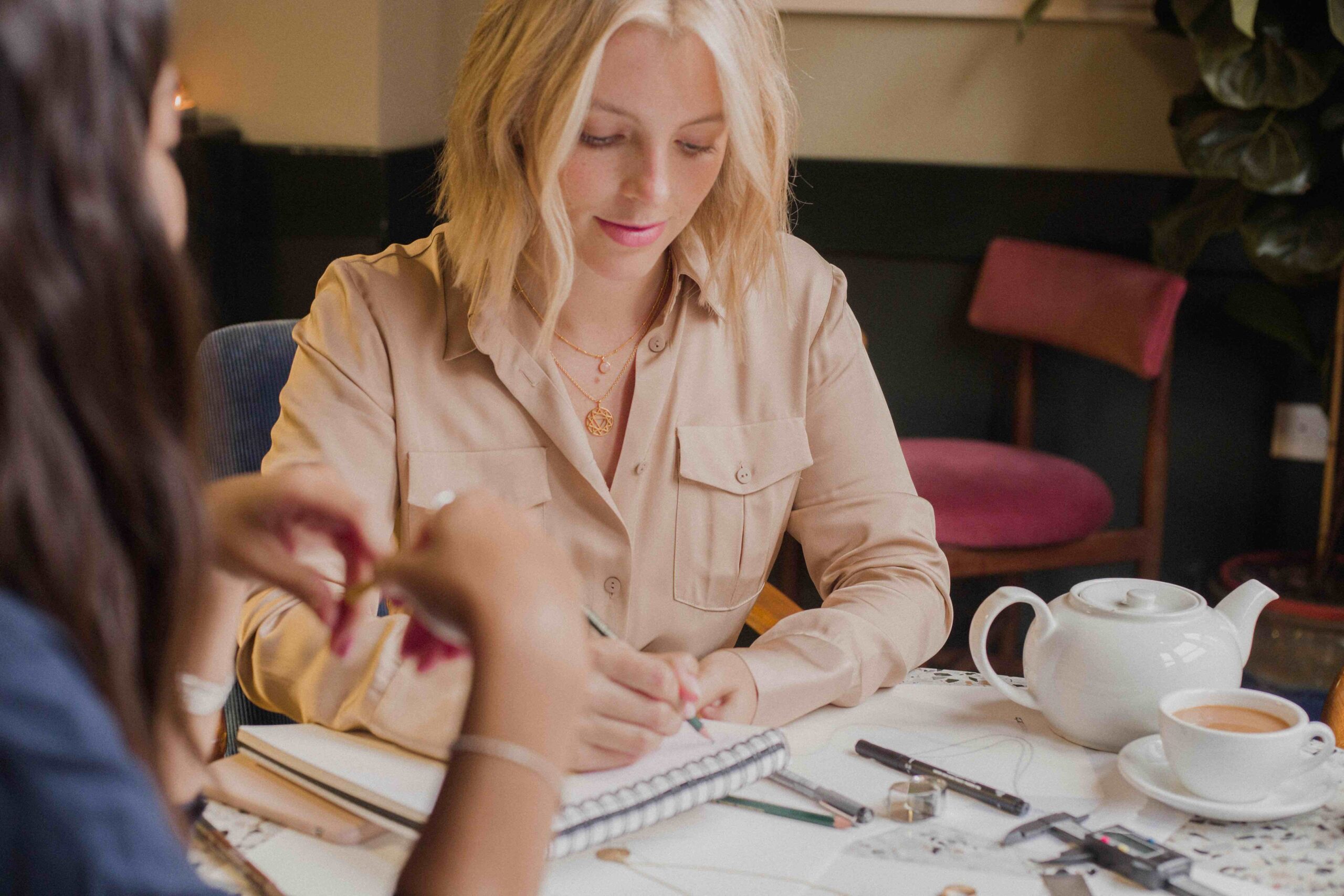
What are your thoughts on the recent Black Lives Matter protests, and how the beauty industry could change for the better?
Since the most recent Black Lives Matter global protests, I have taken a huge step back in recognizing my privilege, not only in my personal life, but through the lens of beauty. The beauty industry has a very long way to go not only in product shade ranges, but in representation and hiring Black people in senior positions. It has been very eye-opening to look at this from a perspective as an influencer and figure out what my role to play is in all of this. I have been doing a lot of research, supporting Black businesses as much as I can, donating and thinking about how I can support the Black community through my work. Example: Asking who else will be part of a beauty campaign to make sure it is diverse. If it is not, I will turn it down and explain why. This is just a small thing I can do, but I do believe Black Lives Matter has already had a positive impact on the way we’re working as content creators. There is a long way to go, of course, but, hopefully, things are moving in the right direction if we all do our best to create change.
What ambitions do you have for your career now?
I am not going to lie. I’m getting a little bit bored. I am starting to feel like I’m ready to move on to another chapter, something that’s really going to challenge me in the same way that this challenged me when I first started. Starting YouTube completely changed me. It made me more confident socially and into a businessperson. It has given me so much knowledge on beauty products. Especially during this time when I have so much time to think, I’m starting to think, “What I am going to do with all that knowledge? What has this all been for?” I can carry on doing this, and I probably will. I love it. Somebody asked me the other day, “Could you go two weeks without posting?” I said, “No.” I literally like posting that I’m having porridge for breakfast and seeing others have porridge for breakfast, and connecting with them.
But I definitely need to do something new and exciting that is going to get me going again. The obvious thing is to start a brand. That’s what it seems like what people do. There have been some good examples of that and not so good examples of that. For me, it’s been about taking the time to think about what I could get passionate about and exactly what the point is. I’ve been thinking about this for years. You can’t just start a brand for the sake of starting a brand. It’s pretty obvious to a consumer when it’s a make-money-quick sort of thing. I would never want to have that vibe of, “She’s just another influencer starting yet another influencer brand.” You start a business hoping to make money, but there has to be a bigger reason and story. That’s the way I’ve always approached sponsorship, too. I don’t want to work with brands because they’re chucking money at me. It has to make sense. For me, I want it to be very well-thought-out.



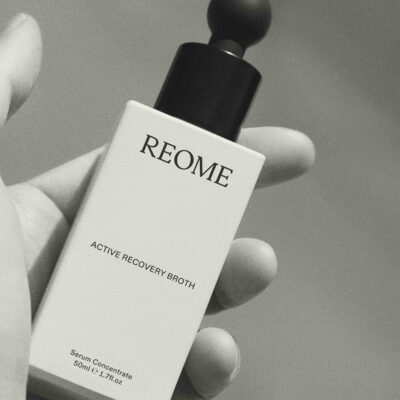
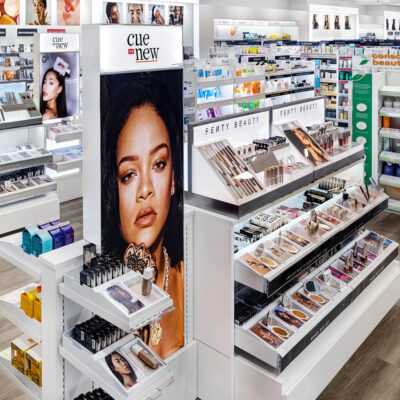
Leave a Reply
You must be logged in to post a comment.